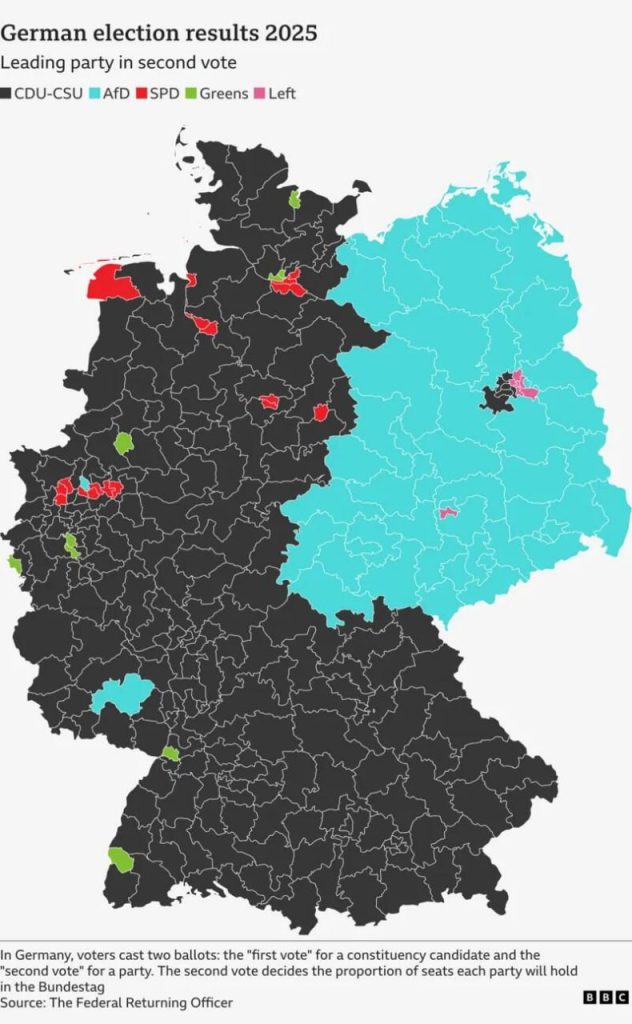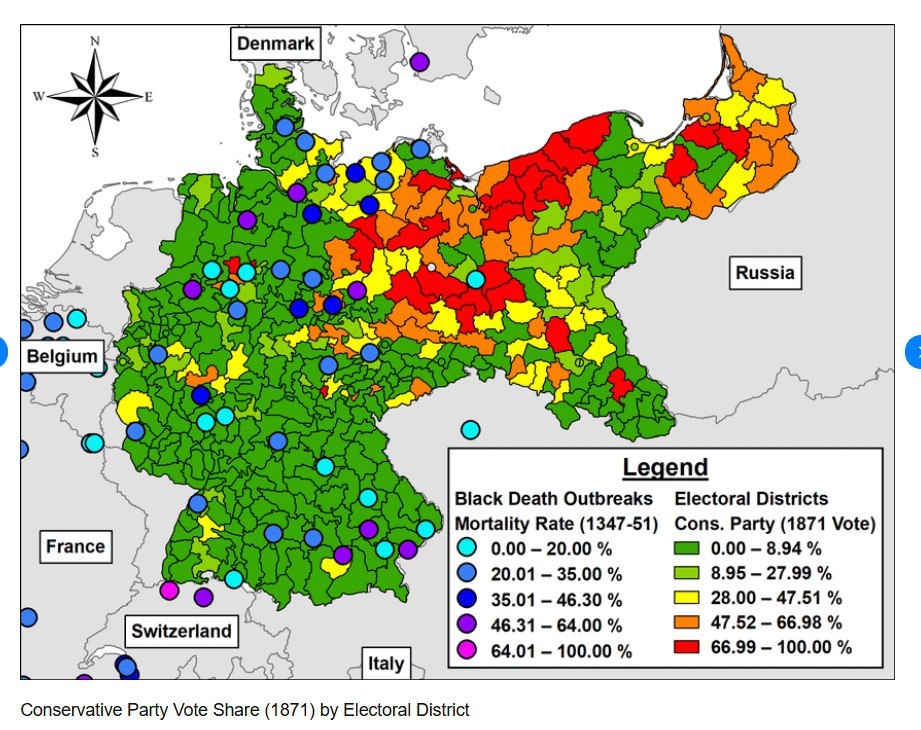Elon Musk’s recent statement, in which he effectively endorsed the Alternative for Germany (AfD) party, caused quite a stir in Europe. Musk said: ‘Either Germany votes AfD, or it is the end of Germany.’ His words raise an important question: why is it that the eastern states of Germany, the former GDR, show the highest level of support for right-wing parties?

After the reunification of Germany in 1990, the federal government had spent a staggering sum of more than €1.5 trillion in the east German states. Despite that, the east German states are the most vulnerable to protest voting. Electoral maps show surprising consistency. In recent elections, it is in the territory of the former GDR that Alternative for Germany has achieved its strongest results. But this is not simply a consequence of economic backwardness, but rather a deep-rooted ‘historical rut’.
In the same states, Prussia and Saxony, at the beginning of the 20th century, people voted en masse for the National Socialists, and before that, they supported authoritarian monarchy and militarism. After the Second World War, the GDR, Moscow’s most loyal satellite, emerged here, where millions of people voted for the communists. Today, they vote for the AfD.
There is a theory that this predisposition has even deeper roots. Some historians, such as Jan Vogler, link the differences between West and East Germany to the consequences of the Black Death in the 14th century. Where the plague wiped out half the population (primarily in the west), the value of labour increased, peasants became free landowners, and a culture of personal initiative developed. In East Germany, where the demographic impact was weaker, serfdom persisted longer, until the 19th century. Peasants were accustomed to subordination, to living under strict discipline and orders from above. Serfdom in Prussia was only abolished in 1807–1810, and then only under pressure from the Napoleonic Wars.

History shows remarkable consistency. The 1871 election map already showed strong support for conservatives in the same regions where the AfD is winning today. What seems to be a ‘new political phenomenon’ is in fact just another manifestation of a centuries-old cultural trend: a penchant for order, strength and simple answers to complex questions. The country is still divided by an invisible border and remains a state of two historical traditions — free Western individualism and Eastern disciplinary collectivism.